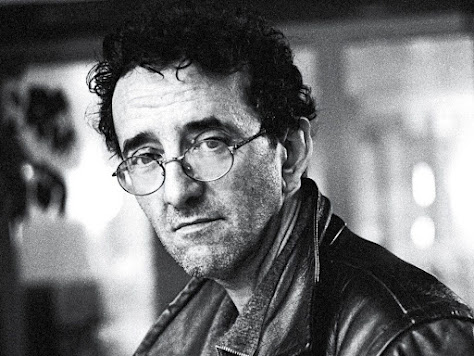'The problem is that he ended up in the wrong profession. He should have gone to work as a hit man, or a prostitute, or gravedigger, which are less complicated jobs than trying to destroy literature. Literature is an armour-plate machine. It doesn't care about writers. Sometimes it doesn't even know they exist. Literature's enemy is something else, something much bigger and more powerful, that in the end will conquer it.'
- Roberto Bolaño
Poets are a subclass in this proto setting document I've been compiling, a rough analogue to the bard and priest classes common in dnd-flavoured media. I've been wanting to flesh out the cultures of the subclasses a bit, mostly for my own clarity around where and how they fit into the rest of the setting. Others may be forthcoming.
Unlike artists and academics, poets only very rarely have a formal training. There is a tradition within their organisation to offer apprenticeship to youths who they feel have the requisite sensitivity, clarity, and sincerity. Poets work with stories, half-truths, and lies; they have an instinctual understanding of propaganda and misinformation. They know the rarity of sincerity and value it highly. Too much sensitivity makes a person into a dupe, too much clarity can make them into a monster. The poet's training is to modulate the fader between these two poles, to tune the soul to a humane median, and to constantly triangulate its position via sincerity. They are (the good ones anyway, there are plenty of poets acting in bad faith, or on the payroll of the powerful) an organisation of broadly humanist-realists, who use music, ritual, intoxicants, rhetoric, and myth-making as their tools to bond social groups together.
This is not generally how poets are perceived by the people around them. Poets are storytellers, and what they produce and disseminate are archetypes and myths that people can relate to. For poets, a performance is a chance to relay and project the truth of these myths. You can bring everyone together and sing the old songs and everyone can have a good time and go home with a smile; that's the easy version, it happens all the time. What a poet wants is to remind people what the stakes of the stories are. What heartbreak can do to you, what war means to the soldier, why you need a just king, why the miser sees his comeuppance.
The mechanism underlying all of this is sincerity; allowing the performance to direct you and your expression, opening yourself up to the truth of it. Closeness to this ideal of true sincerity (the concept is quite similar to that of duende in Flamenco music) is what poets respect in one another, and what they strive for in their own work (often in vain, it's a slippery thing). When it arrives, the genuine truth at the heart of the myth has no moralist flavour, nothing sentimental or saccharine in it - it is a bright, hot, electric thing that can incite riots and revolutions, or end them.
Poets are welcomed in all layers of society, because the performance and the stories are vital, powerful things that cut through social norms.
They are often employed as negotiators, go-betweens, and as legal counsel. Wealthy people engage them as propagandists and troubleshooters. Sometimes they are assassins, thugs, bitter desperados. They are stereotyped as addicts, and many of them are. Whatever they need to get closer to the truth of things; to the world and the story of the world.


No comments:
Post a Comment